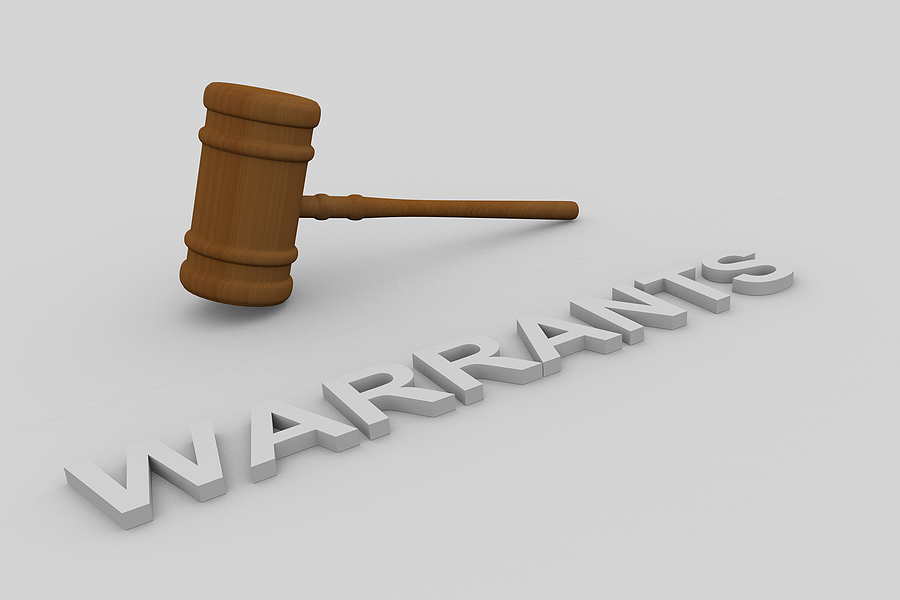TL;DR: Being charged with a crime in Johnson County is serious—but understanding how the local court system works, knowing your rights, and acting quickly can make a significant difference in your outcome. Read on for a clear breakdown of what to expect, what your rights are, and why local legal representation matters.
Key Takeaways:
- You have a right to an attorney before answering any questions. Use it.
- Your initial hearing sets critical deadlines—missing them can permanently waive important legal defenses.
- Johnson County courts follow a standard bail bond schedule, though a judge can modify your bond at any time.
- Common charges like OWI, drug possession, and property crimes carry serious, long-term consequences.
- A local defense attorney who knows Johnson County prosecutors and judges offers strategic advantages no out-of-county firm can match.
Table of Contents:
- Understanding the Johnson County Legal System
- Common Criminal Charges in Johnson County
- Rights of the Accused
- Why Local Legal Expertise Matters
- Frequently Asked Questions
- Quick Recap
- Conclusion
- Schedule a Free Case Review

Understanding the Johnson County Legal System
What happens after you’re arrested in Johnson County? Criminal cases in Johnson County are handled by the Johnson County Circuit Court and Johnson County Superior Courts, which operate under both Indiana statewide rules and Johnson County’s own local rules (effective November 1, 2025).
Your first formal court appearance is the initial hearing. Under Indiana Code § 35-33-7-5, a judicial officer is required to inform you of several key rights and facts at this hearing, including:
- The nature of the charges against you
- The amount and conditions of your bail
- Your right to retain a private attorney or be assigned a public defender at no cost if you cannot afford one
- Your privilege against self-incrimination
- Your right to a speedy trial
- The deadlines you face: if charged with a felony, you have 20 days to retain counsel; only 10 days if charged with misdemeanors only
A preliminary plea of not guilty is automatically entered on your behalf. That plea becomes your formal plea 20 days after the initial hearing for felonies, or 10 days for misdemeanors, unless you enter a different plea before then.
Those deadlines are not formalities. If key motions aren’t filed in time, legal defenses can be permanently waived. Getting an attorney involved early—before the initial hearing if possible—is critical.
What about bail?
Johnson County uses a Standard Bail Bond Schedule. Under local rules (LR41-CR-022), standard minimum bond amounts are set based on the severity of the charge. For example:
- Level 1 Felony: $404,000 cash or surety
- Level 3 Felony: $162,000 cash or surety
- Level 5 Felony: $1,000 cash and $3,000 surety
- Level 6 Felony: $800 cash and $1,000 surety
- Misdemeanor: $250 cash or $1,000 surety
If you are currently on probation, parole, or pretrial release for another charge, your bond may be held without automatic application of the standard schedule, pending a judicial determination. Certain charges—including those involving domestic violence with a prior history, or sex offenses involving children—may also result in a hold without bond until a formal hearing.
A judge can review and modify bond at any time upon written request from either party.
Common Criminal Charges in Johnson County
What are the most frequently prosecuted offenses in Johnson County? Here’s the rundown:
Operating a Vehicle While Intoxicated (OWI)
Indiana law (IC 9-30-5) prohibits operating a vehicle with a blood alcohol concentration (BAC) of 0.08 grams or more per 100 milliliters of blood. The criminal charge levels escalate based on your BAC and prior history:
- BAC of 0.08–0.14: Class C misdemeanor
- BAC of 0.15 or above: Class A misdemeanor
- OWI with endangerment: Class A misdemeanor
- Prior OWI conviction within five years: Level 6 felony
- OWI causing serious bodily injury: Level 6 felony (Level 5 with a prior OWI within five years)
- OWI causing death: Level 5 felony (Level 4 with a prior OWI within ten years)
For drivers under 21, even a BAC of 0.02 constitutes a Class C infraction.
Drug Offenses
Drug charges in Indiana range from simple possession to delivery and manufacturing. Johnson County’s local bond rules note an automatic $100,000 enhancement to bond amounts for charges involving distribution of heroin, fentanyl, or methamphetamine, or the manufacture of methamphetamine—a clear signal of how seriously the county prosecutes these offenses.
Property Crimes
Theft, burglary, and criminal mischief are also prosecuted regularly in Johnson County. Penalties vary based on the value of property involved and the circumstances of the offense. What begins as a misdemeanor charge can escalate to felony territory quickly, particularly with prior convictions or aggravating factors.
Rights of the Accused
What constitutional rights protect you during an arrest and prosecution? Understanding your rights is not just useful—it can directly affect the outcome of your case. Here is what you need to know:
Right to remain silent (Fifth Amendment): You are not required to answer police questions beyond providing basic identifying information. Anything you say can and will be used against you. Exercise this right clearly and early.
Right to counsel (Sixth Amendment): You have the right to an attorney. If you cannot afford one, the court must appoint a public defender. Indiana Criminal Rule 2.3 also prohibits the prosecution from engaging in plea negotiations with unrepresented defendants who have not waived their right to counsel—another reason to secure representation immediately.
Right against unreasonable searches and seizures (Fourth Amendment): Evidence obtained through an unlawful search may be suppressed, potentially weakening or eliminating the state’s case against you.
Right to a speedy trial: Indiana law guarantees this right, and it must be formally preserved in certain circumstances by your attorney.
These protections are only as strong as your ability to assert them. An experienced defense attorney knows when these rights have been violated—and how to act on that.
Why Local Legal Expertise Matters
Does it really make a difference to hire a Johnson County defense attorney specifically? Yes—significantly. Criminal defense is not a generic practice. Every county has its own judges, prosecutors, and unwritten norms that shape how cases are negotiated and tried. A local criminal lawyer who regularly practices in Johnson County Circuit and Superior Courts brings knowledge that a generalist or out-of-area lawyer simply cannot replicate.
Local attorneys understand:
- Prosecutorial tendencies: How the Johnson County Prosecutor’s office typically approaches plea offers for specific charge types
- Judicial preferences: How individual judges handle sentencing, bond hearings, and evidentiary arguments
- Diversion and alternative programs: Johnson County operates several problem-solving courts, including Drug Court (Circuit Court), Behavioral Health Court, Reentry Court, and Veterans Treatment Court. A qualified attorney can assess whether diversion is a viable path for your case
- Discovery timelines: Under Indiana Criminal Rule 2.5, the state has 30 days from the initial hearing to provide discovery. A local attorney tracks these windows closely and uses them strategically
Local knowledge is not a luxury—it is a practical advantage.
Frequently Asked Questions
Can I get a public defender in Johnson County?
Yes. Under IC 35-33-7-5, if you are indigent, you have the right to appointed counsel at no cost. However, public defenders carry heavy caseloads. If your situation allows, retaining private counsel ensures more dedicated attention to your case.
What happens if I can’t afford bail?
You may be eligible for pretrial release supervision through the Johnson County Adult Probation Pretrial Release Division. This program involves a risk assessment, and if approved, you may be released on your own recognizance with conditions—such as regular check-ins, maintaining employment information, and not leaving Indiana without court permission.
Will a criminal charge show up on my record even if I’m not convicted?
Arrests can appear on background checks even without a conviction. Indiana law provides some pathways for expungement or sealing of records, depending on the charge and outcome. Discuss your specific situation with an attorney.
What is pre-trial diversion?
Pre-trial diversion is an agreement that allows eligible defendants to avoid a formal conviction by completing certain conditions—such as counseling, community service, or restitution. Johnson County local rules include provisions for diversion fees under IC 33-37-4-1 and 33-37-5-17. Eligibility is not guaranteed and depends on the charge and your criminal history.
How long does a criminal case in Johnson County typically take?
This varies widely based on charge severity, court dockets, and whether the case goes to trial. Felony cases are generally more complex and take longer. Your attorney can give you a realistic timeline once they have reviewed your specific circumstances.
Quick Recap:
- Arrests in Johnson County are governed by both Indiana law and local court rules (effective November 1, 2025)
- Your initial hearing is where critical deadlines begin—20 days to retain counsel for felonies, 10 days for misdemeanors
- Bond is set using the Johnson County Standard Bail Bond Schedule and is subject to judicial review
- OWI charges begin at a Class C misdemeanor (BAC 0.08–0.14) and escalate significantly with aggravating factors
- Drug and property charges can carry enhanced penalties, especially with prior history or high-value offenses
- You have a constitutional right to remain silent, to an attorney, and to a speedy trial—assert these rights immediately
- Johnson County operates Drug Court, Behavioral Health Court, Reentry Court, and Veterans Treatment Court as alternative programs
- Hiring a local defense attorney gives you strategic advantages in negotiations, hearings, and trial
Conclusion
Navigating the legal system can be a daunting experience, but understanding your rights and options is crucial to achieving the best possible outcome. Whether you are facing charges, exploring alternative court programs, or considering hiring a defense attorney, being informed will empower you to make confident, strategic decisions.
Remember to act quickly, assert your rights, and seek professional guidance to protect your future. With the right support and a proactive approach, it is possible to overcome legal challenges and move forward with clarity and purpose.
Criminal charges move fast. Deadlines pass. Defenses get waived. The earlier you act, the more options you have. Our attorneys know Johnson County—its courts, its prosecutors, and its procedures. We offer a free criminal defense case review to help you understand exactly where you stand and what your next steps should be. Schedule a free case review today. Your future is worth protecting.
Related Post: Indiana Alternative Sentencing: Options Beyond Jail Time









